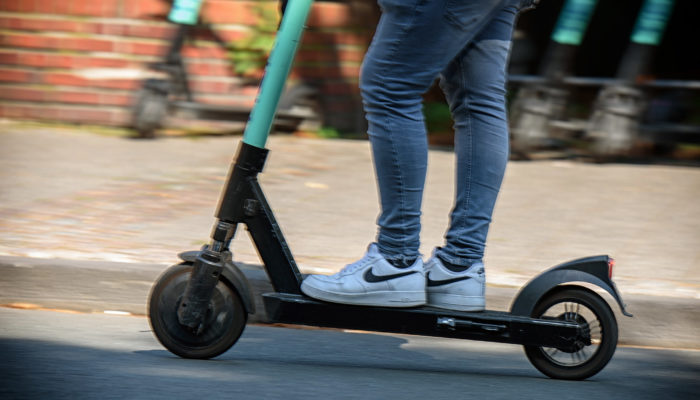
Earlier this year, the Association of Directors of Environment, Economy, Planning & Transport (ADEPT) published its policy position on active travel and a further policy position on e-scooters. Hannah Bartram, Chief Operating Officer for ADEPT talks about the importance of active travel and argues that it is key to economic and environmental recovery.
Active travel – non-motorised forms of transport that involve physical activity – is hugely beneficial for the environment, by reducing greenhouse gases and improving air quality. Described by the Committee on Climate Change (1) as an ‘essential element of the transition to a net zero carbon economy’, active travel also has many health, economic, and social benefits.
Towards the end of 2019 ADEPT, together with partners including Public Health England, the Association of Directors of Public Health and Sustrans, began working on a policy position on active travel.
Fast forward several months, the country entered lockdown. The social distancing measures introduced resulted in unprecedented levels of active travel across the UK, creating opportunity and the chance to do things differently.
For example, local authorities introduced new measures to enable social distancing, which included reduced waiting times at pedestrian crossings, installing temporary roadways and signage, and reallocating road space seeking to make active travel feel safer and more convenient. We were able to reflect on these changes in the policy position, to help promote and continue the trend of active travel.
The multiple benefits to the environment, the quality of place and the health of the community, means active travel is a key priority for local authorities. However, we know that there are barriers to sustaining these trends, as many people are likely to revert to previous modes of travel once social distancing measures are relaxed. The ongoing constraints on using public transport, and people’s fear of using it, also means that travelling by private car is likely to remain popular. This means local authorities have a role to play not just in creating and maintaining active travel infrastructure, alongside promoting behaviour change towards attitude to travel.
To meet the 2050 net zero carbon target, active travel must be embedded into society – relying on the emergence of electric and hydrogen powered vehicles and carbon offsetting is not enough. Active travel really is the most sustainable transport option and is set to make a critical contribution to climate targets if levels can be increased significantly.
In particular, encouraging active travel for the first mile/last mile elements of journeys could make a real difference. The increase in numbers of e-scooters is a real opportunity as they could revolutionise the way we travel for those elements of our journeys.
ADEPT believes e-scooters will form an important part of the active travel jigsaw, offering a wide number of benefits. However, we also recognise there are many questions that need to be answered, including whether they should be allowed in bus and cycle lanes, ensuring safety, age limits, technical standards and insurance. ADEPT recently prepared a thought-provoking policy paper on e-scooters which sets out the benefits of e-scooters and outlines how the Government can support increased take up.
A major hurdle to creating / sustaining real change is funding. Although the government announced significant funding for active travel, we are still waiting for the second tranche of the emergency active travel funding to be released.
In addition, local authorities need to ensure funding can be fully utilised by understanding the travelling public’s priorities, identifying flaws in existing travel networks, and delivering new infrastructure where required.
Taking action now and making the most of new opportunities is key to our economic and environmental recovery and sustainability. We need to embrace active travel into our transport network and into our lives.
- Committee on Climate Change (2019) Behaviour change, public engagement and net zero https://www.theccc.org.uk/publication/behaviour-change-publicengagement-and-net-zero-imperial-college-london/
- More information about ADEPT can be found on its website: adeptnet.org.uk
- More information about ADEPT’s work on climate change can be found here: https://www.adeptnet.org.uk/projects/climate-change-hub
About the Author
This post was written by Hannah Bartram. Chief Operating Officer for the Association of Directors of Environment, Economy, Planning & Transport (www.adeptnet.org.uk)
